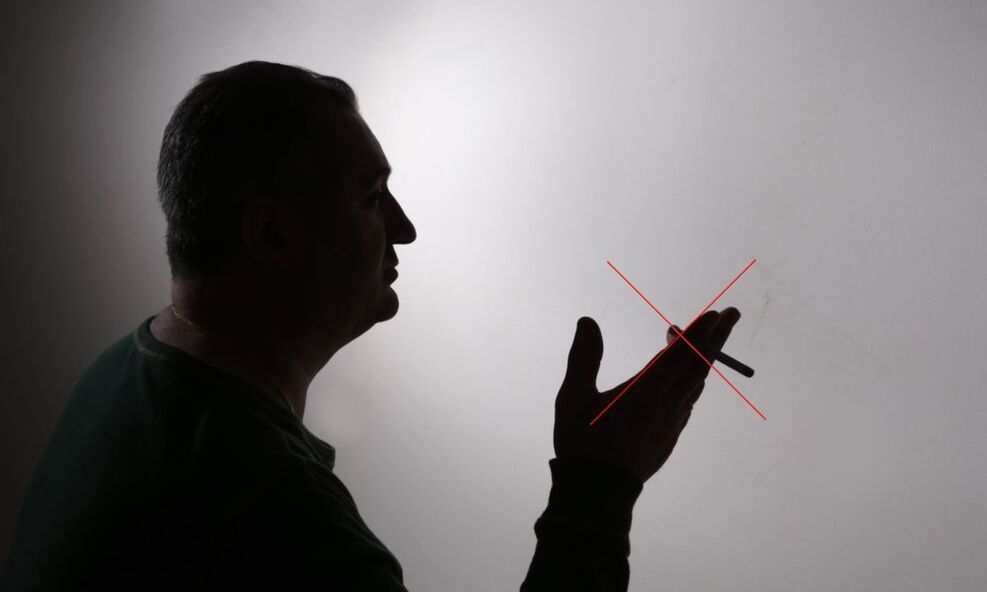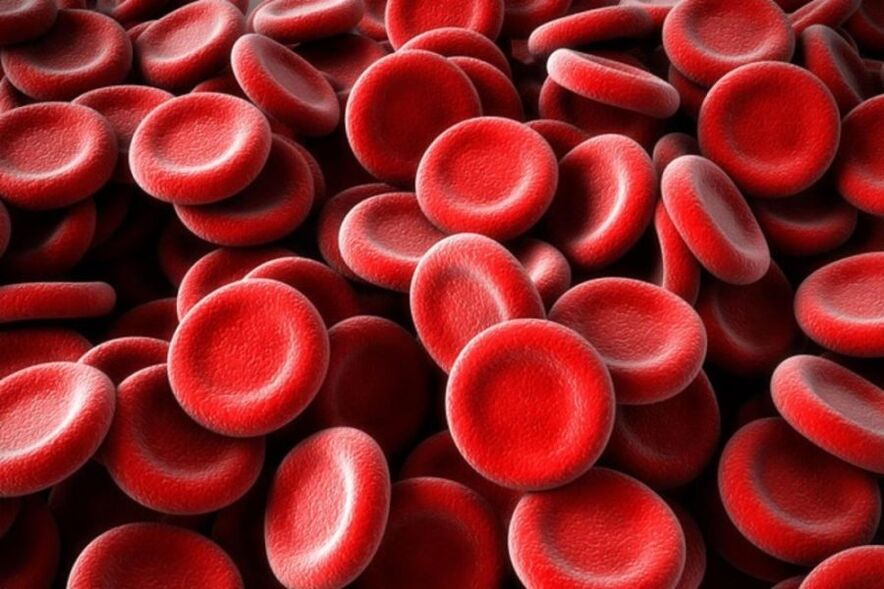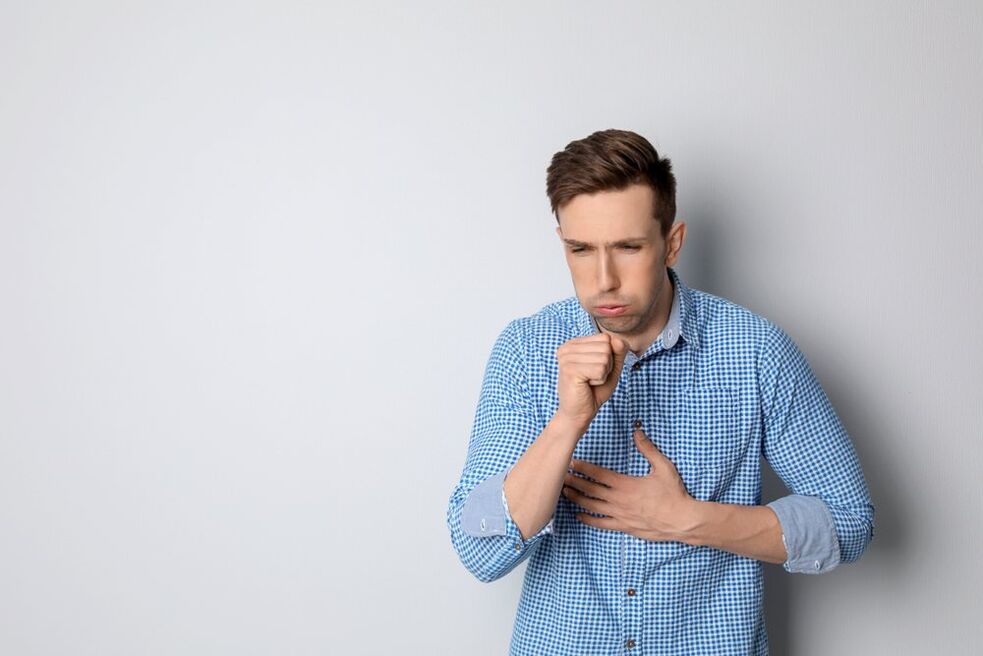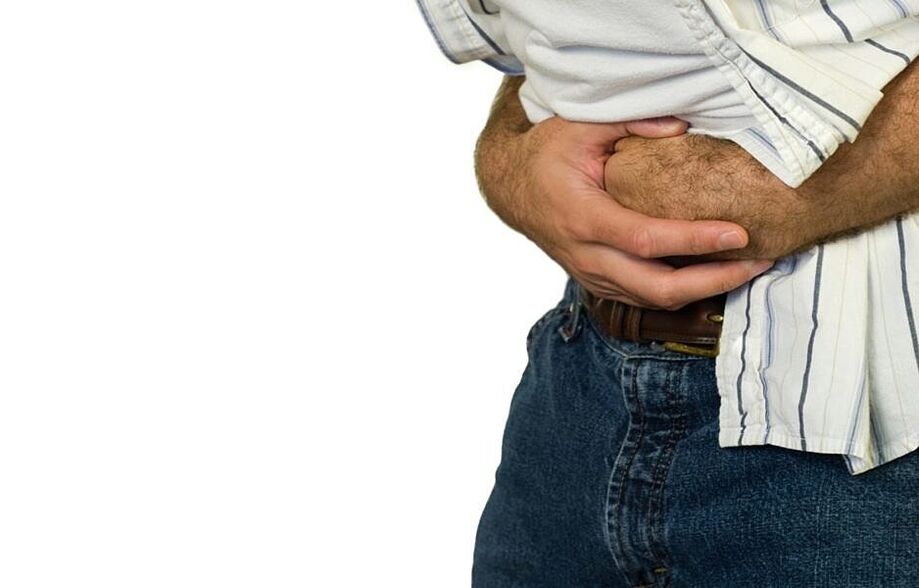
Smoking is a drug addiction that is very difficult to deal with. Cigarettes are quickly introduced into the lifestyle, and without them a person feels overwhelmed. Everyone who has tried to say goodbye to a destructive habit knows that it is not easy to do this. After prolonged smoking, the body reacts negatively to the absence of nicotine, so a complete rejection of cigarettes is accompanied by a "withdrawal" syndrome. Before making a difficult decision, you need to know what will happen to the body and how to survive this period.
Pros and cons of quitting smoking
A person who decides to quit smoking experiences some discomfort at the beginning of a difficult journey. Changes frighten the smoker, so many give up their idea and pick up a cigarette again. The lack of nicotine is manifested by various symptoms that indicate the onset of stress due to quitting tobacco. If the experience of smoking is long, recovery will be painful and long. The process of restructuring is always accompanied by psychological and physical discomfort:

- Reduced immunity - a former smoker is prone to frequent colds. If earlier nicotine served as doping, then without it the body gets severe stress. Against this background, ARVI, acne, stomatitis, etc. appear;
- There is an intense cough with brown sputum - you don’t need to be afraid of it, because thanks to coughing, the airways are freed from soot and soot. Over time, the ciliated epithelium resumes its work, pushes out the mucus and sputum that has accumulated in the bronchi;
- Irritability, nervousness, depression - when nicotine stops entering the body, withdrawal occurs. It lasts for several days. During this period, the former smoker closely follows people who inhale tobacco smoke, he dreams of the whole process, the smell drives him crazy and causes a strong desire to smoke. If earlier nicotine activated pleasure receptors, now their work is inhibited. A person shows aggression, breaks down on loved ones. Relatives should support the former smoker, distract him, interest him in new hobbies. Gradually, the craving will decrease, but the desire to smoke will not go anywhere;
- Headaches and discomfort in the abdomen appear - within a few weeks the body will be cleansed of nicotine decay products, due to which the functions of all organs and systems are normalized. The absence of nicotine leads to vasospasm, abdominal pain, and impaired stool. Unpleasant symptoms will disappear after 2-3 weeks.
A person who quit smoking feels very hungry, suffers from insomnia, complains of a slow heartbeat. He begins to rush to food, which causes excess weight. All these symptoms are complemented by bad mood and irritability. But there are also benefits to quitting smoking:
- breathing is restored within 7 days;
- bad breath disappears;
- the sense of smell returns and taste buds begin to work normally;
- after a month, blue circles under the eyes disappear, the skin becomes more elastic, its color improves;
- blood circulation is normalized, blood vessels are toned, potency improves in men.

Also, the blood is saturated with oxygen, which nourishes all cells. Due to this, the skin and internal organs are less susceptible to aging. The body is cleansed of toxins and toxins, immunity increases. After a few weeks, the volume of the lungs returns to normal, and the symptoms of chronic pathologies of the respiratory system often disappear. But the main benefit of quitting smoking is reducing the risk of hypertension, lung cancer, stroke and heart attack.
Important!
The removal of nicotine does not mean a complete cleansing of the body from its decay products, which have accumulated over the years. Recovery occurs gradually, usually over months or sometimes years.
Changes in the body by day
Any narcologist will tell you about what happens in the body of a man who has decided to finally get rid of nicotine addiction. Doctors say that the benefits of quitting smoking are very large, but you will have to be patient while the body recovers. The liver produces endogenous nicotine, which maintains normal metabolism. Tobacco nicotine cannot be compared with your own, and it comes in larger quantities. When the level of the substance drops, the body experiences nicotine starvation, demanding a new dose. If it is not possible to get it from the outside, the liver begins to produce endogenous nicotine again. After 3 days, a person can already do without a cigarette, but the cravings still remain.
If we talk about psychological dependence, the situation is more complicated. There are many reasons for the pathological craving for smoking, it can be an innate tendency to addictions, difficulties in communicating with people, a desire not to stand out, etc. It is difficult to get rid of such dependence, and the more experience, the more difficult it will be for a person on the way to a healthy life. The situation is complicated by smoking friends, in whose company you have to constantly be. In order not to seem like a "white crow", many people again inhale harmful smoke, such a craving lasts for years and does not let go of a person. A psychotherapist will help get rid of it, who will find out the causes of pathological addiction and will be able to motivate the patient.
How are the first 10 days without nicotine
Consider how the body recovers after giving up a cigarette and what it is accompanied by:
- First day- The blood is purified from carbon monoxide and saturated with oxygen. A person is proud of himself, sure that he was able to overcome a bad habit and is ready to go to the end. At this stage, the craving for cigarettes is mild, easily interrupted by suggestions like "I quit smoking. "Sometimes a person has dizziness, weakness, mild anxiety. On the first day, it is difficult to fall asleep, eat, sleep is superficial and sensitive;
- Second day- the ciliated epithelium begins to work better, the production of mucus in the lungs decreases, the first signs of withdrawal syndrome appear. Euphoria continues, but irritability and nervousness appear. Cravings can still be suppressed by self-hypnosis, drowsiness is replaced by energy. At the physiological level, there are such changes as an increase in appetite, a person is drawn to foods with a pronounced taste. Cough intensifies, shortness of breath develops, abdominal cramps, frequent urge to go to the toilet. It is difficult for a person to fall asleep, itching is possible, the skin is tight;
- The third day- the restoration of the bronchi and ciliated epithelium begins. Blood vessels are toned, craving for nicotine at the physiological level is reduced. On the 3rd day, nervousness increases, dependence manifests itself more, a person does not know how to be distracted and what to do. Sleep disturbing, often interrupted. Appetite sharply increases, a person is drawn to "sweets", belching and heartburn occur. When bending over, the head is spinning, the heart "shrinks", there is noise in the ears. The skin is flaky, small dry acne is visible on it;
- Fourth day. Blood flow to the brain normalizes, the stomach and pancreas continue to recover. Aggressiveness gradually decreases, irritation can be stopped with medications. Many people improve their mood, but absent-mindedness is noted, sleep is still superficial. It is possible to increase blood pressure, tinnitus, mild dizziness. Urination normalizes, but there is constipation. Appetite is reduced, cravings for certain foods are noticeable. A person feels a viscous mucous lump in the throat, a cough occurs. Many develop swelling of the face, fingers and ears;
- The fifth daywithout cigarettes - ulcers heal on the tongue, vascular tone normalizes. Some sections of the broncho-pulmonary system are being rehabilitated, the work of the intestines is still disturbed. On the 5th day, euphoria disappears, the state of health worsens, there is a desire to smoke. At this time, it is easy to break loose, you can not succumb to treacherous cravings. Food becomes tastier, but this only applies to dairy, citrus products, etc. Loose mucus is felt in the chest area or in the throat, which makes it difficult to breathe. Viscous dark sputum is intensively coughed up;
- On the sixth daythe secretion of mucus increases, the work of the stomach and pancreas normalizes. The withdrawal syndrome is growing with renewed vigor, there is tearfulness, insomnia and irritation. A person is looking for cigarettes, it is difficult to restrain himself, but it is necessary. Against this background, vegetative disorders are noticeable in the form of sweating, tremor, and nausea. Sometimes there is pain in the hypochondrium, bitterness in the oral cavity, increased thirst. The dark mucus is still coughing up, you can see threads of blood in it;
- Seventh day- physical cravings practically disappear, the body works calmly without the usual dose of nicotine. From that day on, a full recovery begins. A devastated person, but already aware that smoking is a kind of ritual, and not a physical need. It is important to completely protect yourself from everything related to tobacco products. Motivation to quit smoking is renewed. The mucus does not disappear, the cough is intense. Intestinal tone is normalized, but constipation may occur periodically. A week without cigarettes has a positive effect on appetite, but heartburn appears from fatty foods.

Important!
The first five days are the hardest for a person who quits smoking. He experiences a strong "breakdown". At this time, the risk of breaking is the highest.

The eighth day is characterized by the activation of olfactory and taste receptors. The tissues in the lungs continue to recover, but the vessels of the brain have not yet grown stronger. The beginning of the second week on an emotional level proceeds calmer. Irritation, aggression and depression are less pronounced. Psychological dependence is still there, sometimes it intensifies. A person complains of a feeling of detachment and loss of something important, sleep is still disturbed. Food acquires a new taste, a person seizes stress, due to which body weight is added.
The ninth day is accompanied by an improvement in the condition of the gastric mucosa and digestion. The broncho-pulmonary system continues to regenerate, hematopoiesis normalizes. It is difficult for people who are in the society of smokers to restrain themselves, but the smell of tobacco is already disgusting. Possible heartburn, abdominal pain, constipation and diarrhea replace each other. At this time, it is easy to catch ARVI, herpes and an allergic reaction appear.

Tenth day - the recovery process continues, immunity gradually improves. Cigarettes no longer cause painful thoughts, but people who smoke nearby provoke difficulties. At this stage, a person needs the support of loved ones, since his own motivation is running out. The cough with mucus continues and can be relieved by hot drinks or food. Many people produce gray or light yellow sputum that smells bad.
The last 4 days of the first stage of the fight against a bad habit
On the eleventh day, the condition of the arterioles, which deliver blood to the tissues, improves. Right now, metabolism and hormonal levels are normalizing. This explains the change in the psyche, the decrease or increase in weight. At the emotional level, aggression and excitability arise, craving for nicotine intensifies, explained by the desire to find out if there will be disgust. Unpleasant symptoms resume, which are attributed to the withdrawal syndrome. Internal tension, tremor, dizziness are the consequences of oversaturation of the brain with oxygen.
Important!
It is believed that you can quit smoking abruptly only if the experience does not exceed 5 years. In other cases, it is not recommended to go to extreme measures. Before you get rid of nicotine addiction, you need to visit a doctor.
Twelfth day - chronic inflammation in the gastrointestinal tract and lungs subsides, the protective functions of the body improve. The psyche is similar to day 11, a person still requires the support of loved ones. Non-heavy smokers note an improvement in facial skin, coughing decreases, and digestion is restored.
Thirteenth day - there is an active renewal of cells, the vessels are unstable. A person may try to smoke out of curiosity. There is malaise, jumps in blood pressure, weakness, heaviness in the back of the head.
The fourteenth day is characterized by healing of the bronchial mucosa, the vessels receive sufficient nutrition, tissues are restored. This day is psychologically difficult, some try a cigarette again, motivating their behavior by the fact that they managed to hold out for a long time and 1 dose of nicotine will not harm. At the physiological level, the cough subsides, the yellow color of the skin gradually disappears, lethargy, weakness and drowsiness appear.

Changes after giving up cigarettes will continue for a long time, full recovery occurs after a few years. After 8-10 months, the yellowness of the teeth disappears, the lungs increase in volume, the condition of the skin and nails improves. If earlier a person smoked more than one pack a day, then a year after giving up cigarettes, the risk of stroke or heart attack is reduced by 2 times, and cancer by 3. The effect can be seen on the very first day when nicotine leaves the body. It becomes easier to breathe, the bronchi are cleared, blood pressure decreases.
How can you help yourself
If a smoker decides to finally overcome addiction, it is necessary to act immediately. The motivation can be the desire to conceive a baby, maintaining health, etc. Having set a goal for yourself, it will be easier to give up cigarettes. At first, the body should receive a maximum of useful substances and vitamins. In the morning on an empty stomach, it is recommended to drink 1 glass of warm milk. It is advisable to be more outdoors and play sports. New hobbies will help you forget and it is easier to survive parting with an addiction.
Some people find it easier to fight nicotine addiction with friends or loved ones. If there are none, they read reviews on the Internet for stimulation, perhaps there is an online friend who also needs support.























